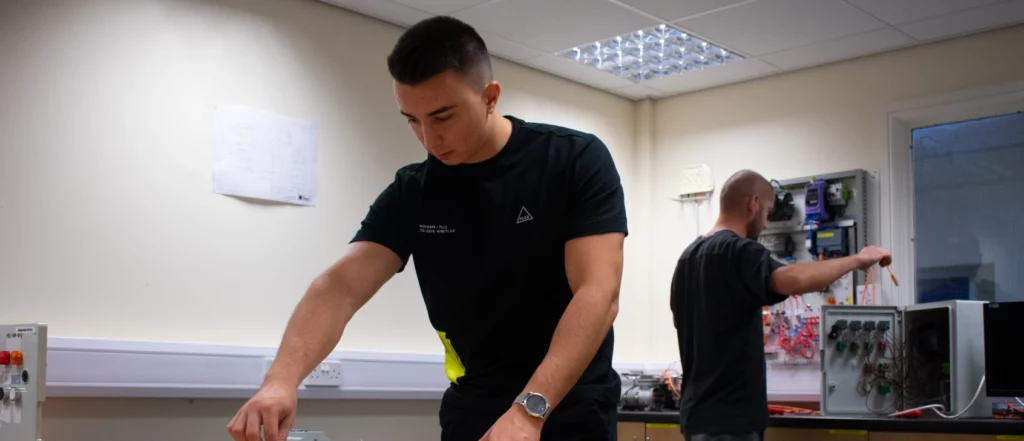Starting Small?
Our Business Support Team understand the questions and barriers you may have hiring an apprentice as a smaller employer (less than 50 employees). We understand…

Contact our Business Support Team to discuss your apprenticeship requirements.
Apprenticeships are a great option to invest in your future, by getting the talent that is right for you. This training route is ideal for small business with government funding available, and allowing you to shape your employees development.
Your apprentice will follow a dedicated training programme to help develop their skills and knowledge. One day a week your apprentice will attend our training centre, or conduct remote learning to work towards the units that make up their Apprenticeship Standard. The remaining days will be spent with you being supported to become competent in their role.
The best path to success for an apprentice is to ensure that it is the right person for you, as well as them being on the right Apprenticeship Standard for you and them.
Of course, your apprentice won’t know everything at first, but with the right training and support from you and us, apprentices can quickly become valued members of your team.
See how easy it is to take on an apprentice with Derwent Training. We support our employers throughout the full process, ensuring the correct employer/apprentice relationship


Your apprentice should have the same conditions as all other employees working at similar grades, or in similar roles. This includes paid holidays, sick pay, any benefits you offer, and any support you offer such as coaching and mentoring. You should always supply your apprentice with a contract of employment and you should have a role available in which they can become competent as part of their Apprenticeship development.
Support your apprentice by participating in tripartite reviews every 10 weeks. This meeting is done between you, your apprentice and their trainer to discuss and agree progress. This is a funding requirement set by the Education and Skills Funding Agency and is an auditable document as part of your apprentices training programme.
You must pay your apprentice for time spent training or studying for their Apprenticeship. If your apprentice is also studying for an English and/or Maths qualification that is required by their Apprenticeship, they are entitled to paid study time during their normal working hours. All apprentices will be required to pass an End-Point Assessment (EPA) in order to gain certification. It is the employers discretion as to when their apprentice is ready for their EPA, but this must be within 3 months of their completion date.
The Education and Skills Funding Agency states that all apprentice employers must have a health and safety assessment of their workplace to ensure that all apprentices are working in safe conditions. As engineering falls in the high risk category this will be updated annually, but only once for the Team Leader and Supervisor Apprenticeship. We will also require a copy of your Employers Liability Insurance Certificate for audit purposes.
Your apprentice must work for 30 hours or more per week, which must include their off-the-job training. We will ask you for their working hours’ when doing their sign-up paperwork to work out the 20% off-the-job training requirement during the Apprenticeship. Your apprentice is required to complete 20% off-the-job learning as part of the Apprenticeship and this will be regularly audited by the Education and Skills Funding Agency (ESFA). Your apprentice needs to log their off-the-job training on their e-portfolio. Your apprentice’s trainer will discuss this during their tripartite progress reviews.

Do you have an apprenticeship opportunity to advertise? List your vacancy with us today to find the future of your business.
Unsure how the funding works? Check out our explainer for small business apprentice funding
Find out about the facilities and training provision we can offer here